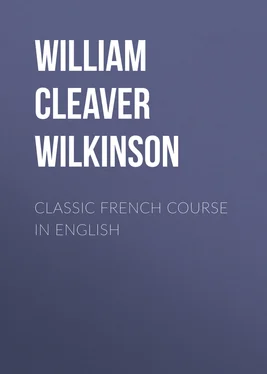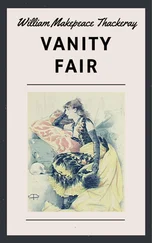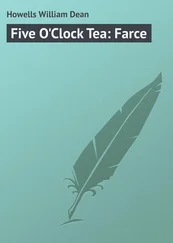William Cleaver Wilkinson - Classic French Course in English
Здесь есть возможность читать онлайн «William Cleaver Wilkinson - Classic French Course in English» — ознакомительный отрывок электронной книги совершенно бесплатно, а после прочтения отрывка купить полную версию. В некоторых случаях можно слушать аудио, скачать через торрент в формате fb2 и присутствует краткое содержание. Жанр: foreign_edu, foreign_language, Языкознание, на английском языке. Описание произведения, (предисловие) а так же отзывы посетителей доступны на портале библиотеки ЛибКат.
- Название:Classic French Course in English
- Автор:
- Жанр:
- Год:неизвестен
- ISBN:нет данных
- Рейтинг книги:3 / 5. Голосов: 1
-
Избранное:Добавить в избранное
- Отзывы:
-
Ваша оценка:
- 60
- 1
- 2
- 3
- 4
- 5
Classic French Course in English: краткое содержание, описание и аннотация
Предлагаем к чтению аннотацию, описание, краткое содержание или предисловие (зависит от того, что написал сам автор книги «Classic French Course in English»). Если вы не нашли необходимую информацию о книге — напишите в комментариях, мы постараемся отыскать её.
Classic French Course in English — читать онлайн ознакомительный отрывок
Ниже представлен текст книги, разбитый по страницам. Система сохранения места последней прочитанной страницы, позволяет с удобством читать онлайн бесплатно книгу «Classic French Course in English», без необходимости каждый раз заново искать на чём Вы остановились. Поставьте закладку, и сможете в любой момент перейти на страницу, на которой закончили чтение.
Интервал:
Закладка:
William Cleaver Wilkinson
Classic French Course in English
PREFACE
The preparation of the present volume proposed to the author a task more difficult far than that undertaken in any one of the four preceding volumes of the group, The After-School Series, to which it belongs. Those volumes dealt with literatures limited and finished: this volume deals with a literature indefinitely vast in extent, and still in vital process of growth. The selection of material to be used was, in the case of the earlier volumes, virtually made for the author beforehand, in a manner greatly to ease his sense of responsibility for the exercise of individual judgment and taste. Long prescription, joined to the winnowing effect of wear and waste through time and chance, had left little doubt what works of what writers, Greek and Roman, best deserved now to be shown to the general reader. Besides this, the prevalent custom of the schools of classical learning could then wisely be taken as a clew of guidance to be implicitly followed, whatever might be the path through which it should lead. There is here no similar avoidance of responsibility possible; for the schools have not established a custom, and French literature is a living body, from which no important members have ever yet been rent by the ravages of time.
The greater difficulty seen thus to inhere already in the nature itself of the task proposed for accomplishment, was gravely increased by the much more severe compression deemed to be in the present instance desirable. The room placed at the author's disposal for a display of French literature was less than half the room allowed him for the display of either the Greek or the Latin.
The plan, therefore, of this volume, imposed the necessity of establishing from the outset certain limits, to be very strictly observed. First, it was resolved to restrict the attention bestowed upon the national history, the national geography, and the national language, of the French, to such brief occasional notices as, in the course of the volume, it might seem necessary, for illustration of the particular author, from time to time to make. The only introductory general matter here to be found will accordingly consist of a rapid and summary review of that literature, as a whole, which is the subject of the book. It was next determined to limit the authors selected for representation to those of the finished centuries. A third decision was to make the number of authors small rather than large, choice rather than inclusive. The principle at this point adopted, was to choose those authors only whose merit, or whose fame, or whose influence, might be supposed unquestionably such that their names and their works would certainly be found surviving, though the language in which they wrote should, like its parent Latin, have perished from the tongues of men. The proportion of space severally allotted to the different authors was to be measured partly according to their relative importance, and partly according to their estimated relative capacity of interesting in translation the average intelligent reader of to-day.
In one word, the single inspiring aim of the author has here been to furnish enlightened readers, versed only in the English language, the means of acquiring, through the medium of their vernacular, some proportioned, trustworthy, and effective knowledge and appreciation, in its chief classics, of the great literature which has been written in French. This object has been sought, not through narrative and description, making books and authors the subject, but through the literature itself, in specimen extracts illuminated by the necessary explanation and criticism.
It is proposed to follow the present volume with a volume similar in general character, devoted to German literature.
I.
FRENCH LITERATURE
Of French literature, taken as a whole, it may boldly be said that it is, not the wisest, not the weightiest, not certainly the purest and loftiest, but by odds the most brilliant and the most interesting, literature in the world. Strong at many points, at some points triumphantly strong, it is conspicuously weak at only one point,—the important point of poetry. In eloquence, in philosophy, even in theology; in history, in fiction, in criticism, in epistolary writing, in what may be called the pamphlet; in another species of composition, characteristically, peculiarly, almost uniquely, French,—the Thought and the Maxim; by eminence in comedy, and in all those related modes of written expression for which there is scarcely any name but a French name,—the jeu d'esprit , the bon mot , persiflage , the phrase ; in social and political speculation; last, but not least, in scientific exposition elegant enough in form and in style to rise to the rank of literature proper,—the French language has abundant achievement to show, that puts it, upon the whole, hardly second in wealth of letters to any other language whatever, either ancient or modern.
What constitutes the charm—partly a perilous charm—of French literature is, before all else, its incomparable clearness, its precision, its neatness, its point; then, added to this, its lightness of touch, its sureness of aim; its vivacity, sparkle, life; its inexhaustible gayety; its impulsion toward wit,—impulsion so strong as often to land it in mockery; the sense of release that it breathes and inspires; its freedom from prick to the conscience; its exquisite study and choice of effect; its deference paid to decorum,—decorum, we mean, in taste, as distinguished from morals; its infinite patience and labor of art, achieving the perfection of grace and of ease,—in one word, its style.
We speak, of course, broadly and in the gross. There are plenty of French authors to whom some of the traits just named could by no means be attributed, and there is certainly not a single French author to whom one could truthfully attribute them all. Voltaire insisted that what was not clear was not French,—so much, to the conception of this typical Frenchman, was clearness the genius of the national speech. Still, Montaigne, for example, was sometimes obscure; and even the tragedist Corneille wrote here and there what his commentator, Voltaire, declared to be hardly intelligible. So, too, Rabelais, coarsest of humorists, offending decorum in various ways, offended it most of all exactly in that article of taste, as distinguished from morals, which, with first-rate French authors in general, is so capital a point of regard. On the other hand, Pascal,—not to mention the moralists by profession, such as Nicole, and the preachers Bourdaloue and Massillon,—Pascal, quivering himself, like a soul unclad, with sense of responsibility to God, constantly probes you, reading him, to the inmost quick of your conscience. Rousseau, notably in the "Confessions," and in the Reveries supplementary to the "Confessions;" Chateaubriand, echoing Rousseau; and that wayward woman of genius, George Sand, disciple she to both,—were so far from being always light-heartedly gay, that not seldom they spread over their page a sombre atmosphere almost of gloom,—gloom flushed pensively, as with a clouded "setting sun's pathetic light." In short, when you speak of particular authors, and naturally still more when you speak of particular works, there are many discriminations to be made. Such exceptions, however, being duly allowed, the literary product of the French mind, considered in the aggregate, will not be misconceived if regarded as possessing the general characteristics in style that we have now sought briefly to indicate.
French literature, we have hinted, is comparatively poor in poetry. This is due in part, no doubt, to the genius of the people; but it is also due in part to the structure of the language. The language, which is derived chiefly from Latin, is thence in such a way derived as to have lost the regularity and stateliness of its ancient original, without having compensated itself with any richness and sweetness of sound peculiarly its own; like, for instance, that canorous vowel quality of its sister derivative, the Italian. The French language, in short, is far from being an ideal language for the poet.
Читать дальшеИнтервал:
Закладка:
Похожие книги на «Classic French Course in English»
Представляем Вашему вниманию похожие книги на «Classic French Course in English» списком для выбора. Мы отобрали схожую по названию и смыслу литературу в надежде предоставить читателям больше вариантов отыскать новые, интересные, ещё непрочитанные произведения.
Обсуждение, отзывы о книге «Classic French Course in English» и просто собственные мнения читателей. Оставьте ваши комментарии, напишите, что Вы думаете о произведении, его смысле или главных героях. Укажите что конкретно понравилось, а что нет, и почему Вы так считаете.












